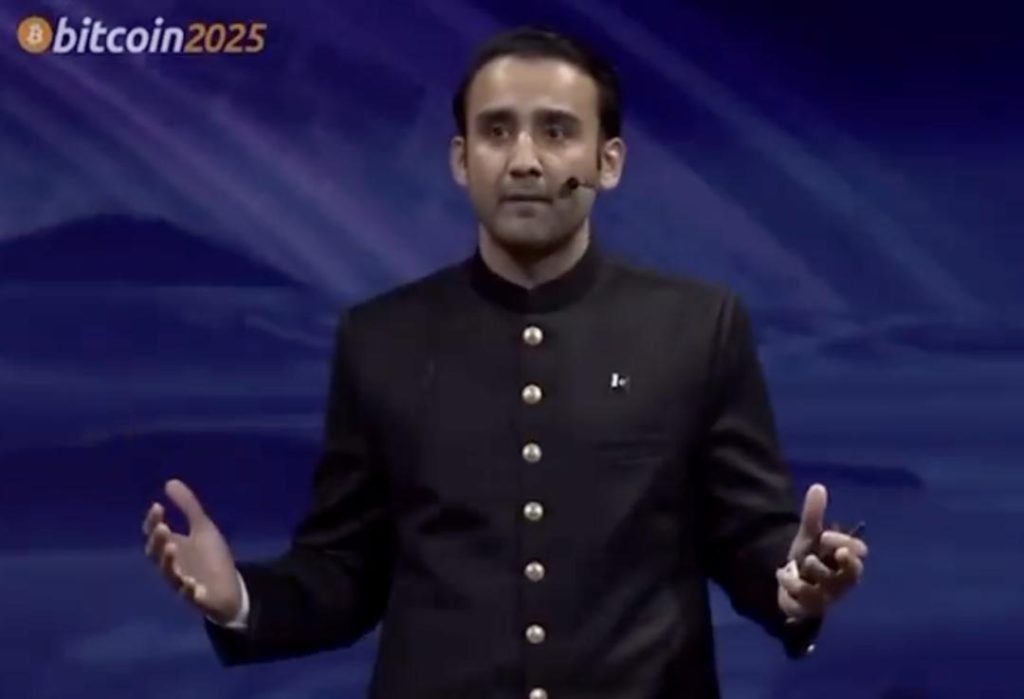
Pak & Bitcoin Suffer from Bad PR: CEO of Pak Crypto Body Linked to Trump-Backed Firm
In a shocking revelation, the CEO of Pakistan Crypto Council, Bilal bin Saqib, has admitted that Pakistan and Bitcoin have “suffered from bad PR” due to misconceptions and misinformation spread about the country and the cryptocurrency. This statement comes at a time when the Pakistani cryptocurrency watchdog is under scrutiny for its deal with World Liberty Financial, a company backed by US President Donald Trump.
The Pakistan Crypto Council, established in 2019, aims to promote the growth and development of the cryptocurrency industry in Pakistan. However, the council’s CEO, Bilal bin Saqib, has now acknowledged that Pakistan and Bitcoin have been victims of bad publicity. In an interview, Saqib stated that Pakistan is often seen through the lens of conflict, which has led to misconceptions about the country and its people.
“We are victims of bad PR. People have a wrong perception about Pakistan and Bitcoin. We are trying to change that narrative,” Saqib said in an interview.
The CEO’s statement comes as World Liberty Financial, a company backed by President Trump, is facing a Senate inquiry over its deal with the Pakistani cryptocurrency watchdog. World Liberty Financial has been accused of having ties to the Pakistani military and has been criticized for its role in promoting cryptocurrency in the country.
The deal between World Liberty Financial and the Pakistani cryptocurrency watchdog has raised concerns about the potential misuse of cryptocurrencies for illegal activities such as money laundering and terrorism financing. The Senate inquiry is aimed at determining whether World Liberty Financial’s involvement in the Pakistani cryptocurrency industry poses a threat to national security.
Saqib’s admission that Pakistan and Bitcoin have suffered from bad PR is a significant development, as it highlights the challenges faced by the country and the cryptocurrency industry in promoting a positive image. Pakistan has been accused of lacking a clear regulatory framework for cryptocurrencies, which has led to concerns about the potential misuse of these digital assets.
The Pakistani government has been criticized for its handling of cryptocurrencies, with some experts accusing it of being slow to respond to the growing popularity of these digital assets. The lack of clear regulations has led to concerns about the potential for cryptocurrencies to be used for illegal activities such as money laundering and terrorism financing.
Despite these challenges, Saqib remains optimistic about the future of cryptocurrencies in Pakistan. He believes that the country has the potential to become a major player in the global cryptocurrency industry, citing the country’s large and growing population of young people who are interested in technology and innovation.
“We have a young population that is interested in technology and innovation. We have a growing middle class that is looking for new investment opportunities. Cryptocurrencies are the future, and Pakistan has the potential to be a major player in this space,” Saqib said.
However, the CEO’s optimism is tempered by the challenges faced by the country and the cryptocurrency industry. Saqib acknowledges that Pakistan and Bitcoin have suffered from bad PR, and that the country needs to work harder to promote a positive image.
“We need to work harder to promote a positive image of Pakistan and Bitcoin. We need to educate people about the benefits of cryptocurrencies and the potential of Pakistan to be a major player in this space,” Saqib said.
In conclusion, the CEO of Pakistan Crypto Council, Bilal bin Saqib, has admitted that Pakistan and Bitcoin have “suffered from bad PR” due to misconceptions and misinformation spread about the country and the cryptocurrency. The statement comes at a time when the Pakistani cryptocurrency watchdog is under scrutiny for its deal with World Liberty Financial, a company backed by US President Donald Trump. Despite these challenges, Saqib remains optimistic about the future of cryptocurrencies in Pakistan, citing the country’s growing population of young people who are interested in technology and innovation.






